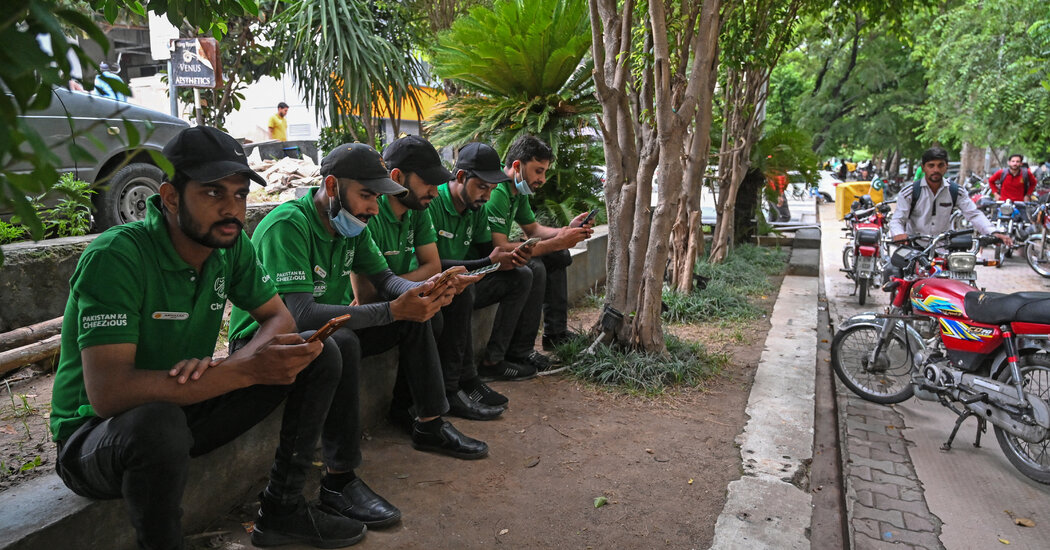Disruptions have fueled claims from rights groups that the Pakistani authorities are introducing technology to surveil and control the country’s internet.
When Shafi Naeem noticed internet speeds slowing in Pakistan in recent days, he grew nervous. Then he panicked. The websites that the Karachi-based freelance software designer used to find work would not load. Those that he had built for clients were taking hours longer than usual to upload onto servers — if they uploaded at all.
Clients sent him WhatsApp voice notes and photos that would not download. An outline of a clock at the bottom right of every image — the symbol that it had not yet been sent — seemed to taunt him.
“It’s not just bad for business; it’s devastating,” said Mr. Naeem, 39. He estimates he has already lost more than half of his roughly $4,000 monthly income. “Our work depends on fast, reliable internet.”
Across Pakistan, internet speeds have ground to a crawl in recent days, stoking uproar and fueling claims that the government is secretly testing a new firewall-like system to better surveil and control the country’s internet. The government denies responsibility for the slowdown, which has affected millions of users and disrupted businesses across the country.
Internet speeds have slowed to half their usual rates, according to trade groups and business owners. Files that once were uploaded in minutes take hours. Online calls and video conferencing are plagued by frozen screens and delayed voices.
The Pakistan Software Houses Association, which represents software companies nationwide, said in a statement that it “unequivocally condemns the grave consequences of the hastily implemented national firewall,” warning that Pakistan’s economy could lose up to $300 million because of the disruptions.
